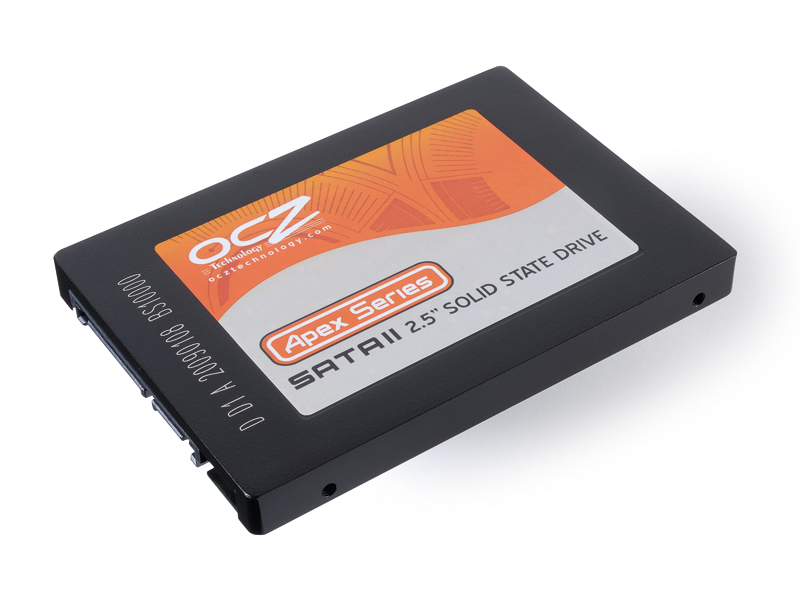TechRadar Verdict
Want top performance, but don't want to sell your entire family for vivisection? Get this!
Pros
- +
Blisteringly fast
- +
Silent operation
- +
Cheaper than the Intel X25-M
Cons
- -
Still an expensive luxury
Why you can trust TechRadar
Every month sees some sort of PC advancement, with the charge generally being led by graphics cards and CPUs.
While practically every aspect of the PC has seen significant speed improvements or radical changes in architecture over the years, the hard drive remains relatively unchanged since the inception of the IBM 350 storage unit in 1956. Mechanical hard drives are now one of the main bottlenecks in your system, like trying to drink a pint through a straw.
Solid State hard drives are basically a load of high-capacity flash memory chips, crammed into a box, with some controller circuitry, but the real problem has been one of price, rather than performance. The price of the chips has been falling for some time, so affordable drives are now a reality, albeit at much lower capacities than traditional drives.
Silence is golden
Clocking in at a reasonable 120GB, the OCZ Apex series falls into the affordable mid-range category. Its 2.5-inch format means it can be used as a direct replacement for any SATA II laptop drive, or mounted in the floppy bay of a standard PC. With no moving parts, it's completely silent.
One of the main concerns with flash memory is that each cell has a finite number of read and write cycles, although the drive does come with a two-year warranty, and a stated Mean Time Before Failure of 1.5 million hours.
However, OCZ does recommend that you do not defrag the drive, as this will shorten its lifespan, so you may want to disable the automatic defrag in Vista.
Sign up for breaking news, reviews, opinion, top tech deals, and more.
OCZ claims 230MB/s read and 160MB/s write speeds, but our tests came a little short of that. Using HD Tach, we got a maximum read speed of 223.4Mb/s and an average write of 167MB/s. Compare this to our standard SATA II drive, which had a burst speed of 130MB/s and an average read speed of just 44.7MB/s.
As a more practical test, we timed how long it took for the PC to boot, load Windows and arrive at the Steam login, as well as loading Portal from a shortcut on the desktop. Using the standard drive, it took a sloth-like 1 minute and 22 seconds to boot Windows, and bang on a minute to load Portal.
The OCZ SSD knocked a stunning 33 seconds off the Portal load time, and 25 seconds off the Windows boot process.Compared to a standard SATA II drive, the results are phenomenal.
They're pretty impressive when held up against other SSDs as well - the OCZ Apex comfortably beats cheaper SSDs, and is close to Intel's X25-M while being £60 less expensive. Even so, nearly three hundred notes for what would be considered entry-level capacity three years ago will be a significant barrier for most. If you really want to eliminate system bottlenecks, it's a price worth paying.
